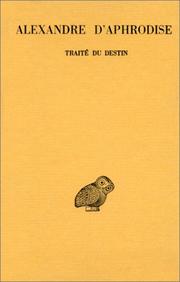| Listing 1 - 10 of 102 | << page >> |
Sort by
|
Book
Year: 1495 Publisher: Brescia Bernardinus de Misintis
Abstract | Keywords | Export | Availability | Bookmark
 Loading...
Loading...Choose an application
- Reference Manager
- EndNote
- RefWorks (Direct export to RefWorks)
Book
Year: 1563 Publisher: Venetiis apud Hieronymum Scotum
Abstract | Keywords | Export | Availability | Bookmark
 Loading...
Loading...Choose an application
- Reference Manager
- EndNote
- RefWorks (Direct export to RefWorks)
Book
Year: 1536 Publisher: Venetiis [s.n.]
Abstract | Keywords | Export | Availability | Bookmark
 Loading...
Loading...Choose an application
- Reference Manager
- EndNote
- RefWorks (Direct export to RefWorks)
Book
Year: 1488 Publisher: (Venice Antonius de Strata, de Cremona)
Abstract | Keywords | Export | Availability | Bookmark
 Loading...
Loading...Choose an application
- Reference Manager
- EndNote
- RefWorks (Direct export to RefWorks)
Book
ISBN: 9782251005799 225100579X Year: 2013 Volume: 494 Publisher: Paris Belles Lettres
Abstract | Keywords | Export | Availability | Bookmark
 Loading...
Loading...Choose an application
- Reference Manager
- EndNote
- RefWorks (Direct export to RefWorks)
Classical Greek literature --- Mixing --- Mélange --- Early works to 1800 --- Ouvrages avant 1800 --- Mélange

ISSN: 01847155 ISBN: 2251003657 9782251003658 Year: 1984 Volume: 298 Publisher: Paris Belles Lettres
Abstract | Keywords | Export | Availability | Bookmark
 Loading...
Loading...Choose an application
- Reference Manager
- EndNote
- RefWorks (Direct export to RefWorks)
Philosophical anthropology --- Classical Greek literature --- Fate and fatalism --- Destin et fatalisme --- Early works to 1800. --- Ouvrages avant 1800 --- Early works to 1800 --- -Destiny --- Fatalism --- Fortune --- Philosophy --- Necessity (Philosophy) --- -Early works to 1800 --- Fate and fatalism - Early works to 1800
Book
ISBN: 0715623478 9780715623473 Year: 1991 Publisher: London Duckworth
Abstract | Keywords | Export | Availability | Bookmark
 Loading...
Loading...Choose an application
- Reference Manager
- EndNote
- RefWorks (Direct export to RefWorks)
Philosophy of science --- Aristotle --- Logic --- Logique --- Early works to 1800. --- Ouvrages avant 1800 --- Aristotle. --- Modality (Logic) --- Contingency (Philosophy) --- Analytica priora (Aristoteles). --- Aristoteles. --- Logic. --- Prior analytics (Aristotle). --- Modal logic --- Nonclassical mathematical logic --- Bisimulation --- Philosophy --- Logic - Early works to 1800 --- Modality (Logic) - Early works to 1800 --- Contingency (Philosophy) - Early works to 1800 --- Aristotle - Prior analytics
Book
ISBN: 0715628992 9780715628997 Year: 2000 Publisher: London Duckworth
Abstract | Keywords | Export | Availability | Bookmark
 Loading...
Loading...Choose an application
- Reference Manager
- EndNote
- RefWorks (Direct export to RefWorks)
In his work On Sense Perception, Aristotle discusses the material conditions of perception, starting with the sense organs and moving to the material basis of colour, flavour and odour. His Pythagorean account of hues as a ratio of dark to light was enthusiastically endorsed by Goethe against Newton as being true to the painter's experience. Aristotle finishes with three problems about continuity. First, in what sense are indefinitely small colour patches or colour variations perceptible? Secondly, which perceptible leap discontinuously like light to fill a whole space, which have to reach one point before another; and do observers of the latter perceive the same thing if they are at different distances? Thirdly, how does the central sense permit genuinely simultaneous, rather than staggered, perception of different objects? Alexander's highly explanatory commentary is most expansive on these problems of continuity. His battery of objections to vision involving travel, which would lead to collisions and interference by winds, inspired a tradition of grading the five senses in respect of degrees of immateriality and of intentionality. He also introduces us to paradoxes of Diodorus Cronus about the relations of the smallest perceptible to the largest perceptible size.
Senses and sensation --- Perception (Philosophy) --- Sens et sensations --- Perception (Philosophie) --- Early works to 1800 --- Ouvrages avant 1800 --- Aristotle --- Aristotle. --- Senses and sensation.
Book
ISBN: 2864323958 9782864323952 Year: 2003 Publisher: Lagrasse Verdier
Abstract | Keywords | Export | Availability | Bookmark
 Loading...
Loading...Choose an application
- Reference Manager
- EndNote
- RefWorks (Direct export to RefWorks)
Nulle part dans son œuvre, Aristote n'a traité de la Providence. Avant lui, Platon l'avait fait longuement dans les Lois. Plus tard, les stoïciens en consacrent la question, que nulle école philosophique ne pourra plus éluder. C'est d'Alexandre d'Aphrodise, l'exégète du corpus aristotélicien, qui vécut au troisième siècle, que nous tenons sur cette question l'exposé doctrinal, conforme à l'esprit grec du péripatétisme, le plus sûr et le plus complet. De cet exposé ne nous est parvenue que la version arabe dont nous donnons ici l'édition. Fruit d'un inestimable travail de recherche philologique, riche d'un apparat critique complet, elle vient combler une lacune majeure dans la connaissance de l'aristotélisme.
Philosophy, Ancient --- Philosophie ancienne --- Aristotelian philosophy
Book
ISBN: 0715624822 9780715624821 Year: 1993 Publisher: London Duckworth
Abstract | Keywords | Export | Availability | Bookmark
 Loading...
Loading...Choose an application
- Reference Manager
- EndNote
- RefWorks (Direct export to RefWorks)
| Listing 1 - 10 of 102 | << page >> |
Sort by
|

 Search
Search Feedback
Feedback About UniCat
About UniCat  Help
Help News
News